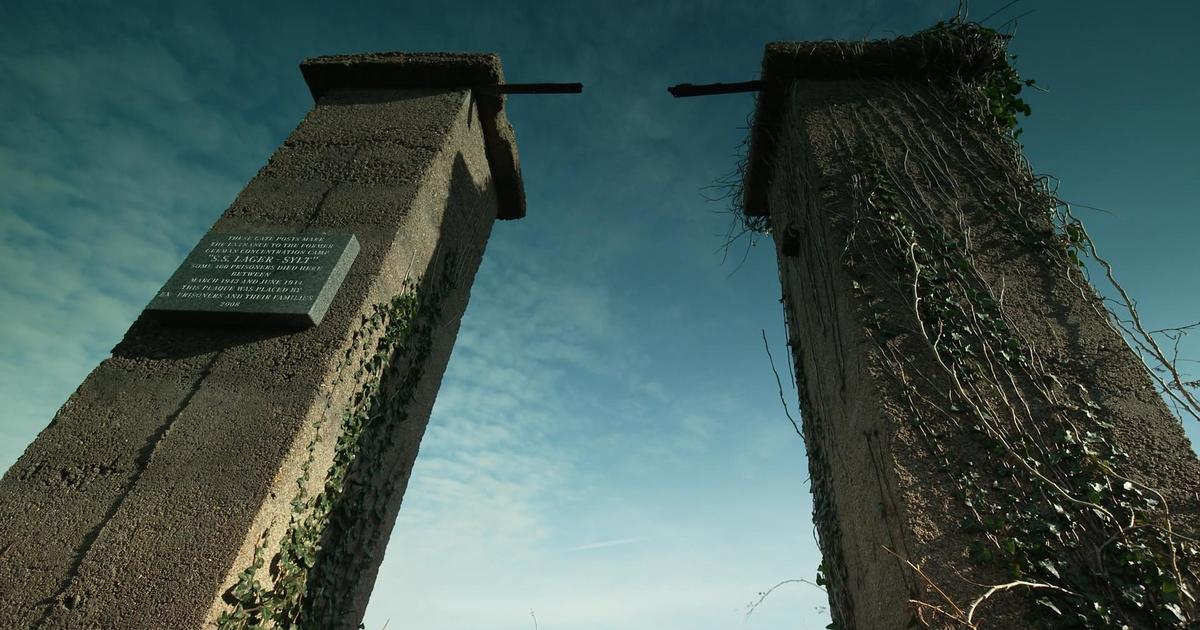When online harassment moves into the real world
After a gunman murdered Lenny Pozner's child, conspiracy theorists relentlessly attacked Pozner online. Then they came for him in person.
Pozner's 6-year-old son, Noah, was one of 26 people killed in the shooting at Sandy Hook Elementary School eight years ago. Shortly after, conspiracy theorists took to the web to spread lies, saying the shooting was staged and that people like Pozner were being paid to fake children's deaths.
Pozner fought back, obtaining a copyright for photos of his son and asking platforms to remove the false information. That is when he became a target.
People posted his personal, identifying information online, in a practice known as doxing. Without warning, the information was available in public forums, including his birthdate, his social security number, and the addresses and photos of homes he had lived in going back almost two decades. To stay ahead of the threats, he has moved his family more than half a dozen times.
But harassers have still found him. Pozner was once in court to obtain a restraining order for someone cyberstalking him when another stalker showed up outside the courtroom to taunt him in person.
For his safety, theatrical makeup artists created a disguise for him to wear during his 60 Minutes interview with Scott Pelley, which was shot before the pandemic.
"There isn't any longer a separation between the online world and the offline world," Pozner said. "What is said about you will carry over into your personal life, into your career, into your relationships, into your community. And it will impact your life."
Pozner's story demonstrates that fighting back against online harassers can be challenging—and often requires the victim to be proactive.
Four years after his son's murder, Pozner turned to the FBI for help. A woman who believed the Sandy Hook shooting was a hoax left threatening voicemails for him, including one that said, "You are going to die. Death is coming to you real soon." That woman, Lucy Richards, was eventually sentenced to five months in prison.
But Richards' case was unusual, in part, because she called from her own phone number, making her identity easily traceable by law enforcement. Many of the others who have harassed Pozner have done so anonymously.
"Of the dozens of people who've harassed him, the other people who have threatened him, none of them have paid much of a price, if any price at all, because that's not the way it works," said 60 Minutes' Henry Schuster, who produced this week's report with Pelley. "The law is really ill-equipped in the cyber age to deal with cyber harassment."
Virginia couple Matt and Maatje Benassi learned how little legal recourse victims have when they became targeted online during the early weeks of the pandemic last year. Conspiracy theorists had concocted a story that claimed Maatje was COVID-19's patient zero—the person responsible for bringing the coronavirus into the world.
The Benassis soon began receiving death threats. When their home address was posted online, they took the threat to their local police department, the FBI, and even the State Department.
But there was little law enforcement could do.
"Even though we're receiving death threats, they didn't say, we're coming to the Benassis to kill them tonight," Matt Benassi said. "And they want something that they can act on right away."
The couple hired a lawyer but learned that, when dealing with harassers on the internet, closure is often not as simple as filing a lawsuit.
"We've put a lot of time into trying to set up a defamation case," Matt Benassi said. "But you realize that for someone who probably has very little money, even if we won a defamation case, it would cost us probably more money than we can even get out of him."
The Benassis, however, have had some success. They turned to Lenny Pozner's non-profit, the HONR Network, which focuses on removing conspiratorial content from platforms like YouTube and Facebook. With Pozner's help, they were able to get George Webb, the main COVID-19 hoax peddler targeting the Benassis, removed from YouTube.
Pozner has also successfully filed defamation suits against high-profile conspiracy theorists. Alex Jones, who claimed the Newtown, Conn. school shooting was a hoax during his radio show Infowars, was ordered to pay $100,000. Jones later admitted in affidavit that "psychosis" led him to claim the shooting was faked. In another case, Pozner was awarded $450,000 in a defamation case against the editors of a book that claimed the Sandy Hook shooting was a hoax.
According to the HONR Network, one in five adults has experienced severe and prolonged online harassment that often continues offline. For Pozner, the internet should not be a place where people can say anything they want, however harmful.
"I think that people don't understand the concept of freedom of speech," Pozner said. "And the internet has now blurred that definition. It doesn't give people the right to defame someone or incite others to hunt someone down. Just generally terrorizing someone is not free speech."
The video above was produced by Will Croxton and Brit McCandless Farmer. It was edited by Will Croxton



